Easy eco-friendly product swaps for a greener home
Go green with these eco alternatives
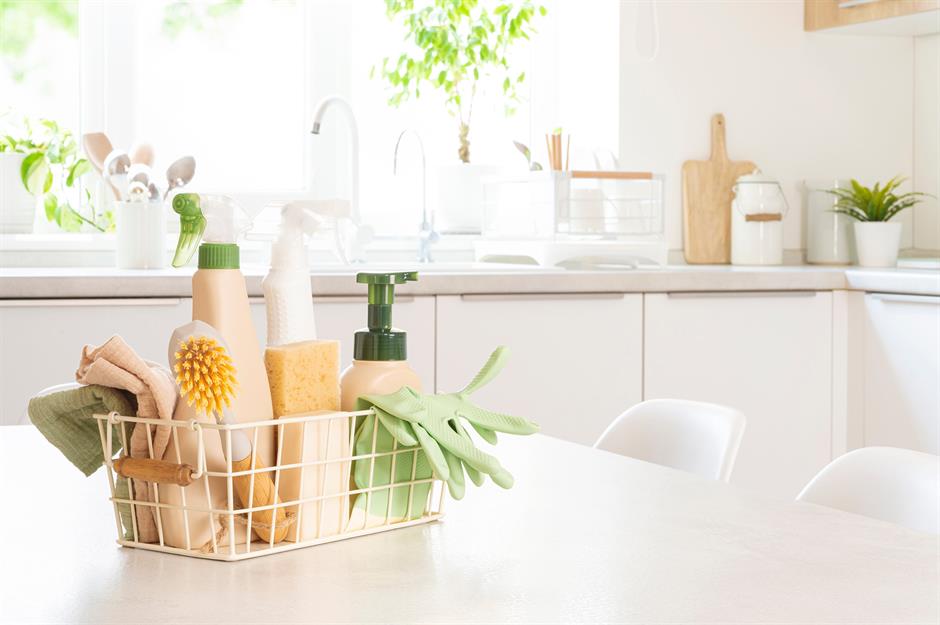
According to the Global Footprint Network, we are currently using nature's resources 1.7 times faster than the planet can regenerate them. The message is clear: something needs to change.
While most people are keen to be greener, many simply don't know where to start. From investing in a reusable shopping bag to ditching plastic toothbrushes, there are lots of easy ways we can lessen our strain on the planet.
Click or scroll on to discover 20 simple household swaps you can make right now...
Swap packaged fruit and vegetables for loose produce
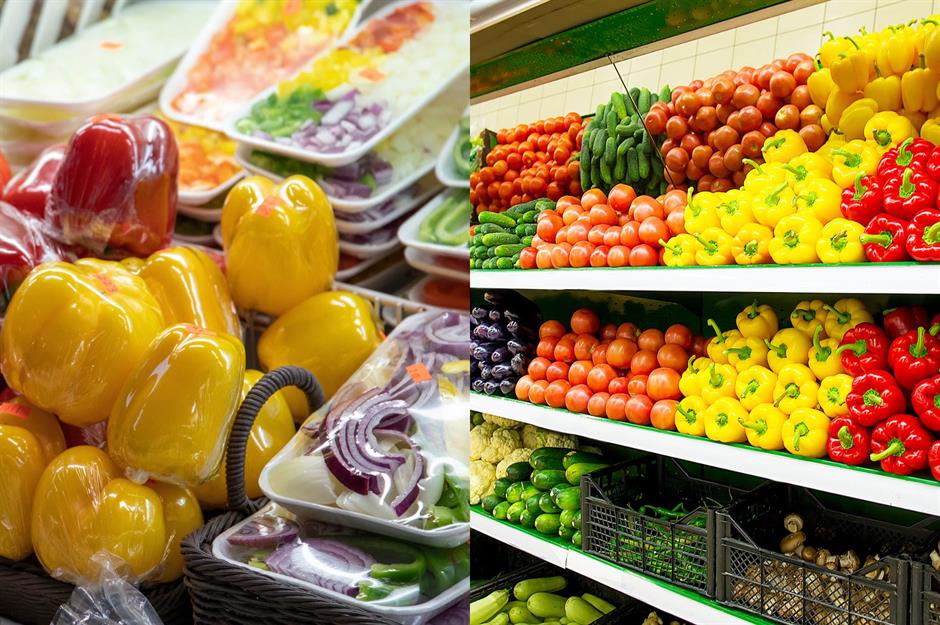
A simple way to bring less plastic into your home is to purchase loose produce instead of the packaged kind. In fact, it’s such a green idea that many retailers have plastic-free refill initiatives, allowing customers to use their own packaging.
Check out your local greengrocers or farmers' market, too, for reasonably priced and often local options. Or failing that, you could even have a go at growing your own.
Swap a plastic bag for a reusable shopping tote
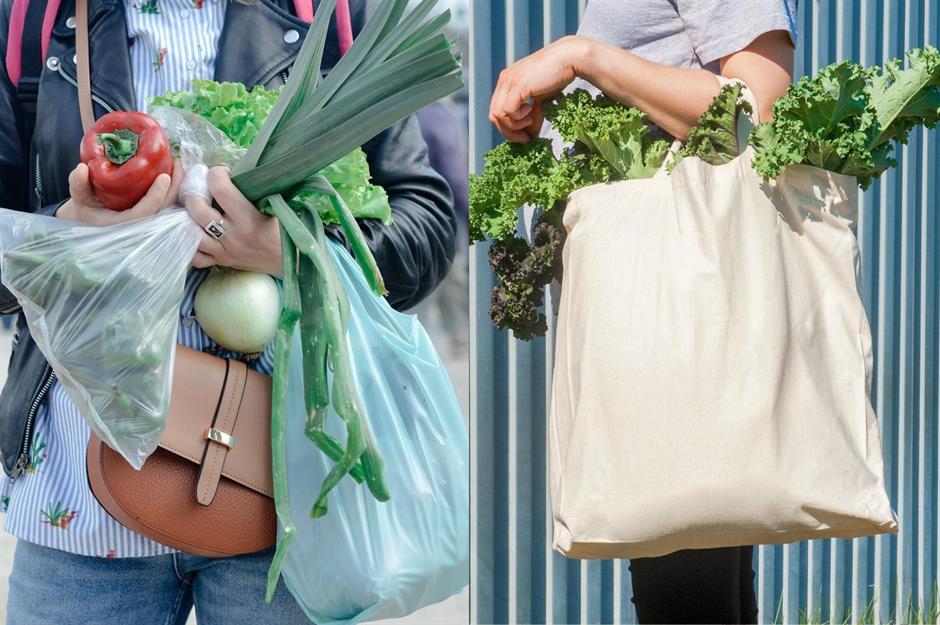
It can take up to 500 years for a plastic bag to break down and, as it does, it releases harmful plastic particles, which contaminate soil and waterways. These particles also enter our food supply, causing a risk to our health.
So, ditch single-use plastic bags for a sturdy reusable one. It might cost a little more upfront, but it will last for many years and, over time, save you money.
Sponsored Content
Swap plastic wrap for reusable beeswax wraps
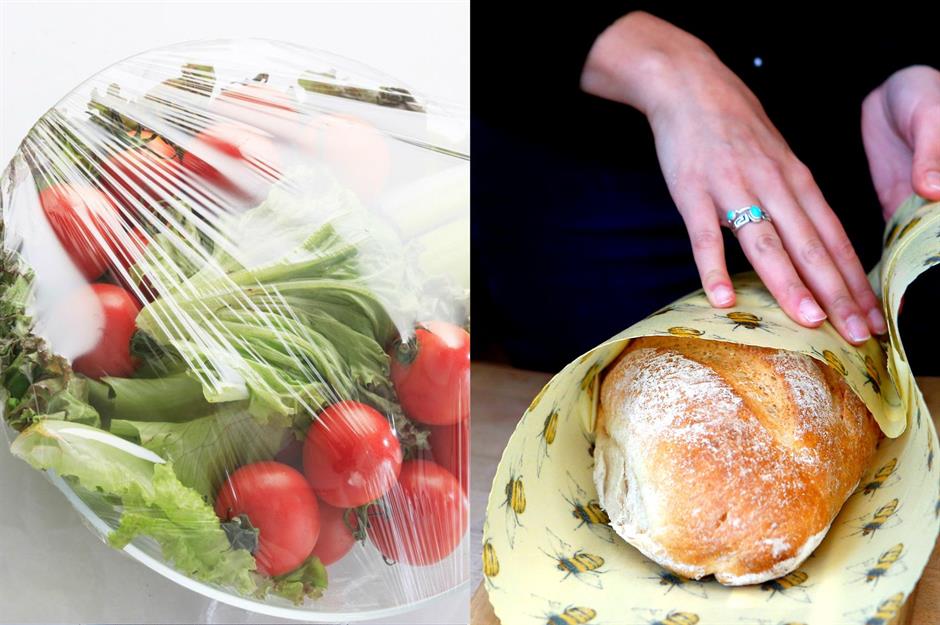
Disposable plastic cling wrap is bad news for the environment, but it's a convenient kitchen tool many of us rely on. Fortunately, there is now a green alternative for wrapping up leftovers – beeswax wraps.
Made from organic cotton, beeswax and jojoba oil, one of these wraps will last up to a year, and once it's at the end of its life, it can be placed in the compost bin to biodegrade.
Featured beeswax wrap available from Home & Gift.
Swap takeout coffee cups for a reusable coffee mug
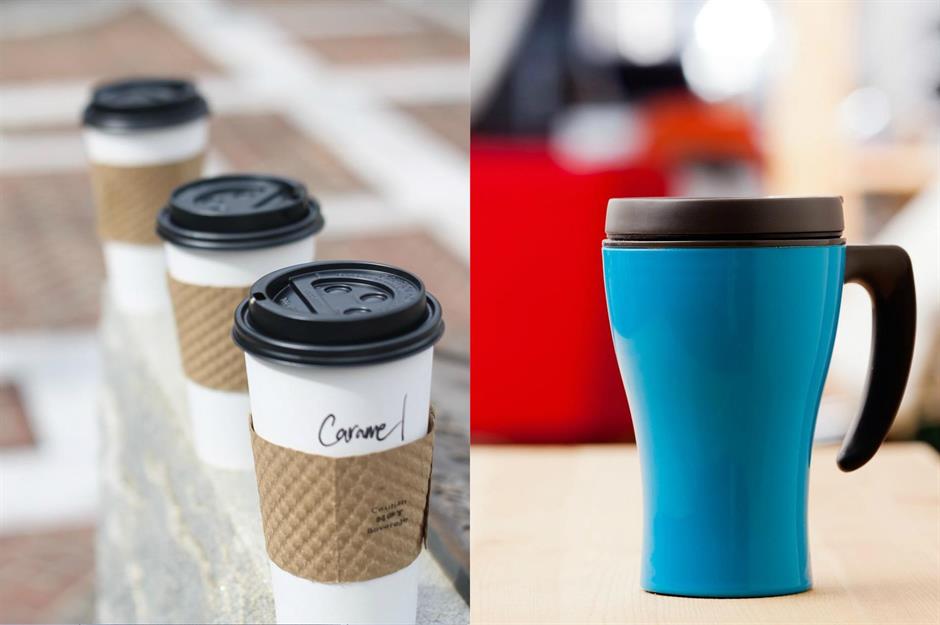
Recent statistics suggest that globally, we throw away 500 billion disposable coffee cups every single year, and while many coffee shops have switched to more eco-friendly containers, formed from recycled plastics, we can go one step further by avoiding disposable cups altogether.
Instead, buy yourself a reusable coffee cup. Some cafes will even give you a discount on your order for bringing your own cup. Win-win!
Swap a pod coffee machine for a cafetière
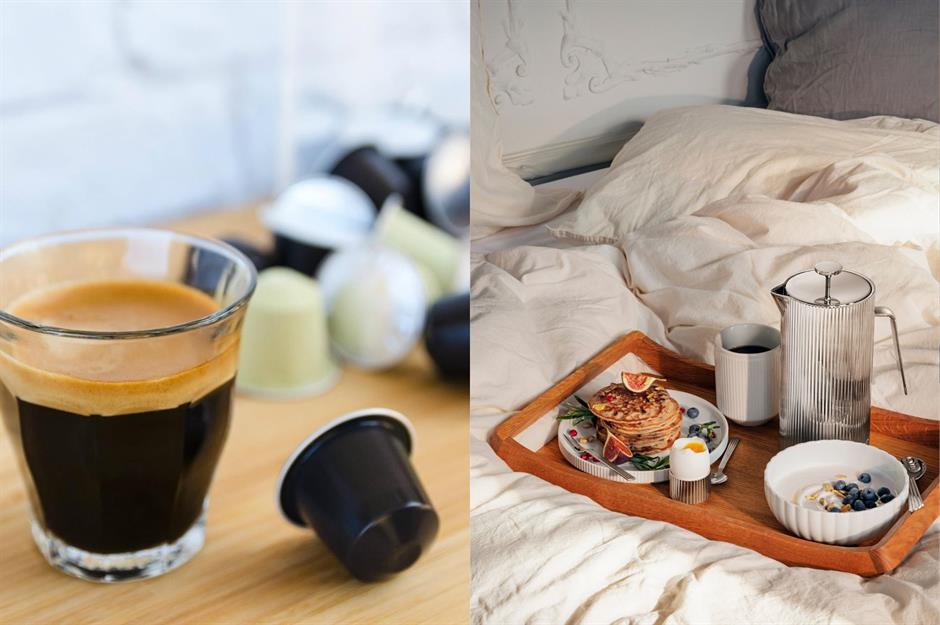
In 2018, a staggering 59 billion coffee capsules were produced, and it's no wonder when you consider that 40% of Americans own one. France dominates the European market, with over 70% of households owning at least one coffee capsule machine.
But these convenient hits of caffeine are difficult to recycle, since they contain organic matter. Buy eco-compostable pods instead, or swap your pods out for a good old-fashioned French press.
Featured French press available from Black By Design.
Sponsored Content
Swap a plastic toothbrush for a bamboo toothbrush
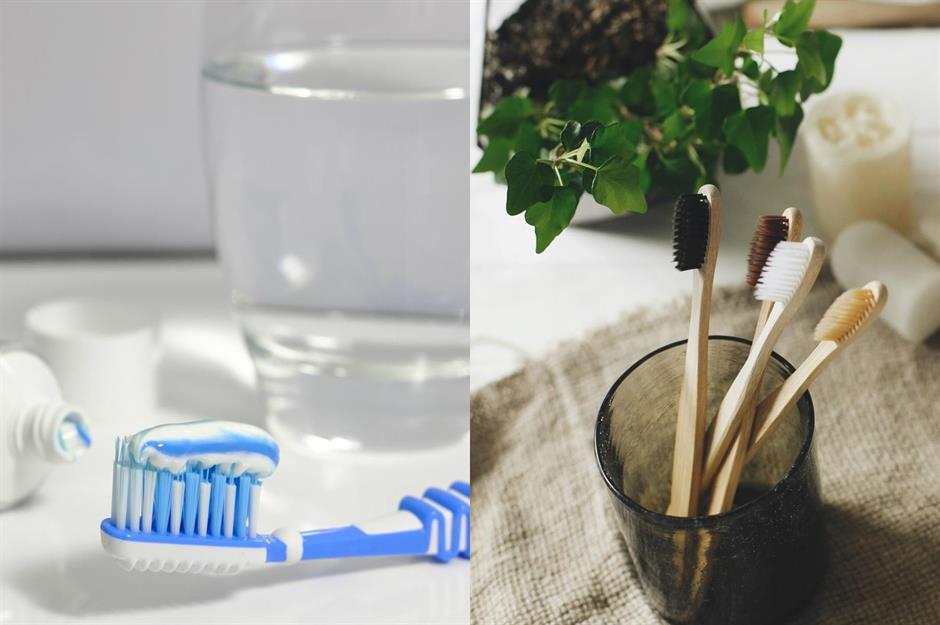
It’s thought that over 3.6 billion plastic toothbrushes are used and disposed of annually, with many ending up in landfills and a staggering 80% finding their way into the sea.
Swapping your toothbrush for a bamboo version may seem like a drop in the ocean, but when you consider the average person goes through 300 in a lifetime, you can see how it would quickly add up.
Swap teabags for a tea strainer
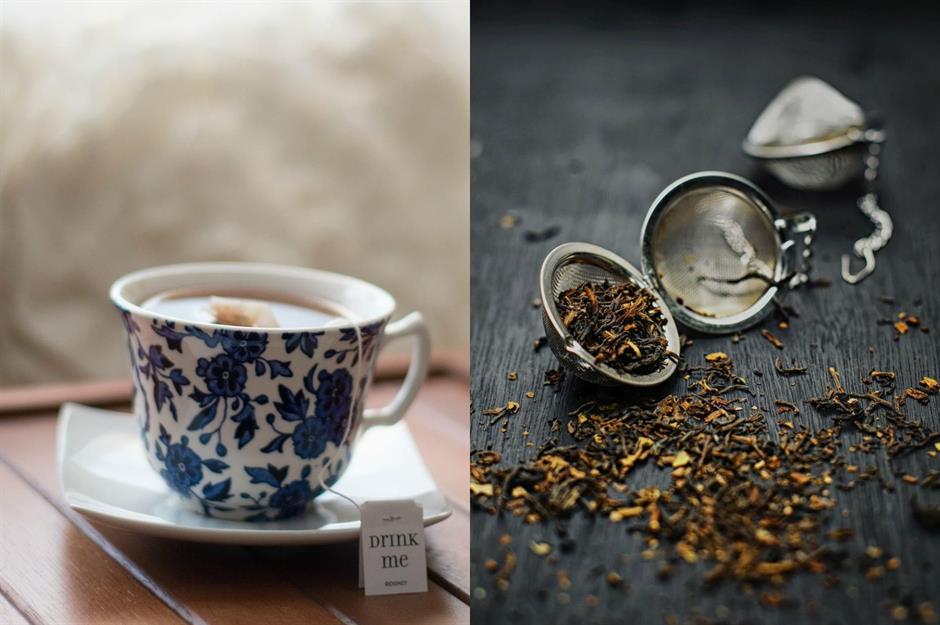
Around 25,000 cups of tea are drunk around the world every second. In the UK alone, it's estimated that 60 billion cups of tea are consumed each year and globally, tea is the second-most consumed beverage, after water.
But, unfortunately, many teabags contain plastic, since it helps stop them falling apart. Plastic-free organic teabags are a great alternative. Or why not try loose-leaf tea and a strainer instead? You’ll be doing your bit for the environment, plus experts say loose tea is of much higher quality.
Swap plastic straws for steel straws
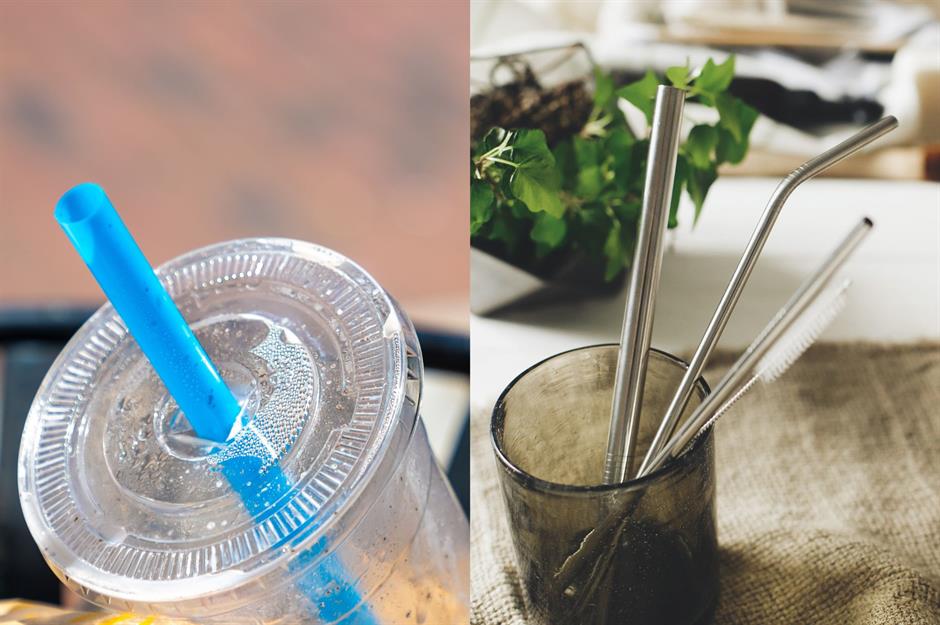
In 2018, a harrowing YouTube video of a turtle with a straw stuck up its nose highlighted just how dangerous single-use plastic is for marine life.
If you’re an avid straw user, pick a sturdy steel one that you can use for years to come. You can purchase cleaning kits for them to keep them fresher for longer.
Sponsored Content
Swap baking paper for reusable baking liners
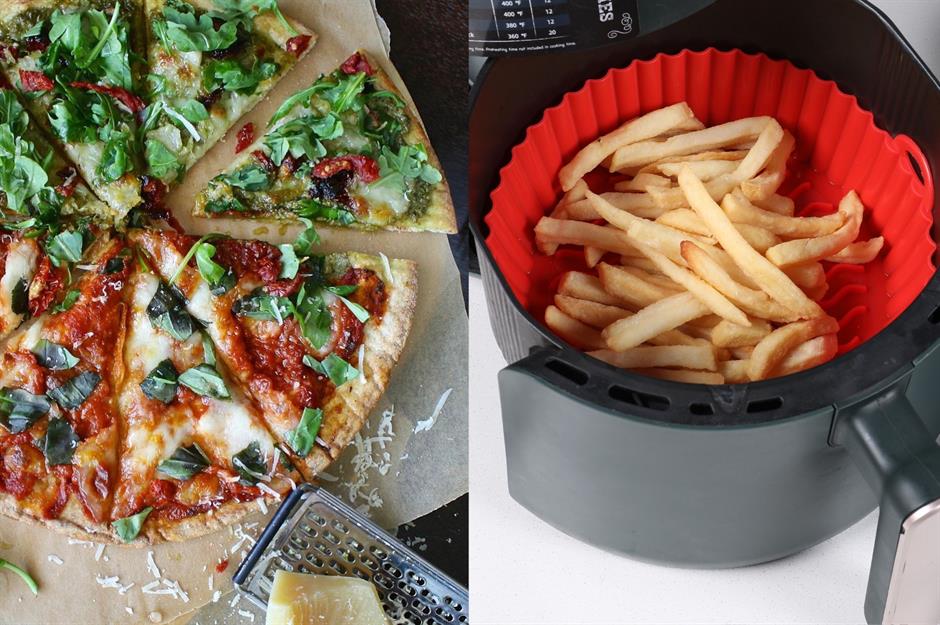
Most baking paper is coated with silicone to help make it non-stick. Plus, once it’s been stained with food, it can’t be recycled.
If you do a lot of baking, why not invest in some reusable baking liners? Many will last for five or more years, are dishwasher safe, and can be cut to size.
Swap plastic storage containers for glass containers
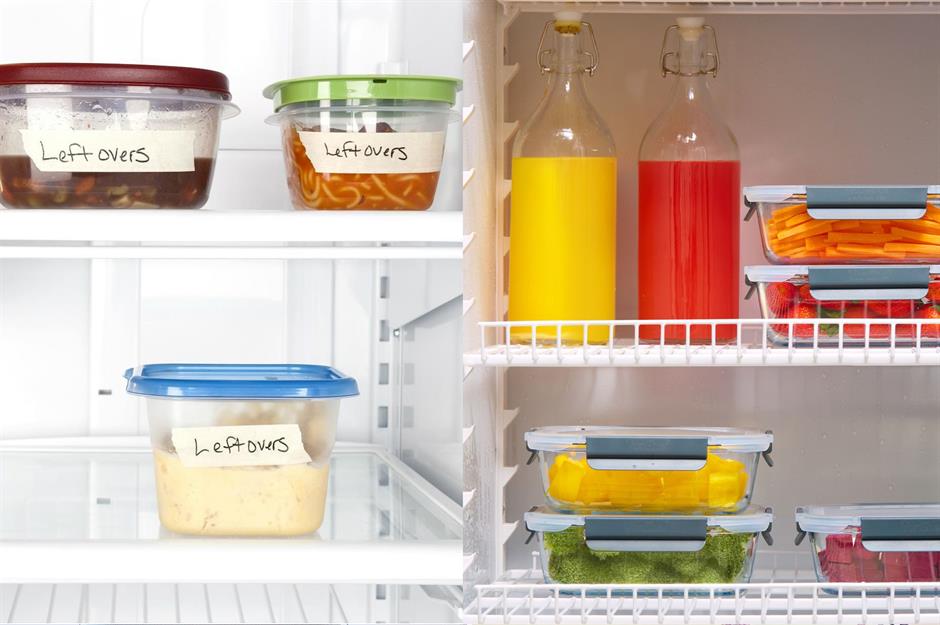
While plastic containers are reusable, there comes a point where they need to be replaced. Plus, some suggest plastic containers can allow microplastics to seep into food.
Instead, consider investing in some good quality glass storage containers. A set should last forever, with proper care. Plus, they're much easier to clean!
Featured glass storage containers available from VonHaus.
Swap traditional bedding for recycled bedding
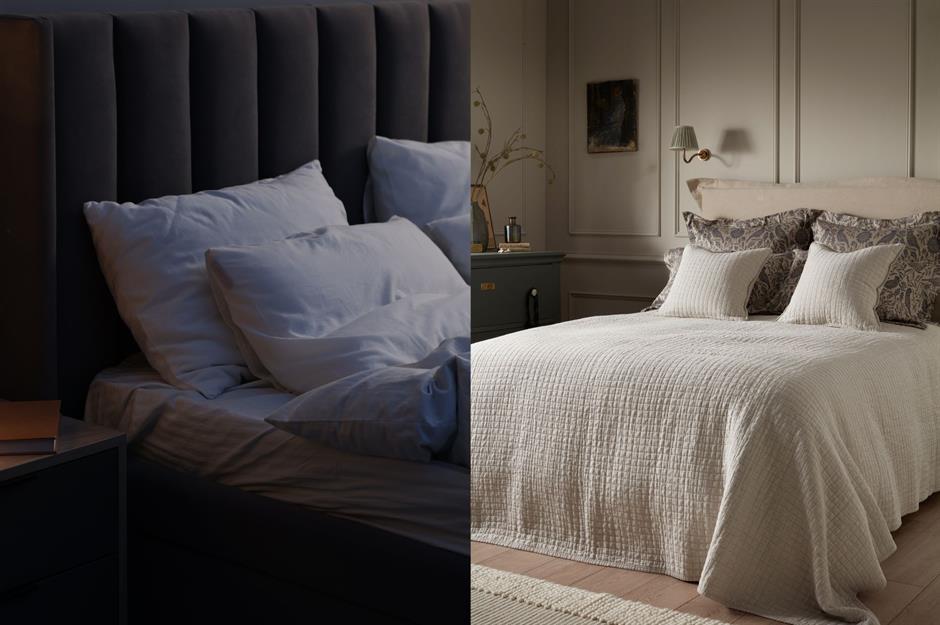
Many bedding companies opt for synthetic fibres, such as polyester, since they're durable and affordable. However, such materials are not biodegradable, so they pose challenges when it comes to waste management and the environment.
But, would you believe that many companies are now offering bedding formed from recycled and eco materials? Usually softer and more breathable than bedding formed from synthetic materials, there's really no downside to upgrading.
Featured eco bedding available from The Secret Linen Store.
Sponsored Content
Swap kitchen roll for reusable bamboo towels
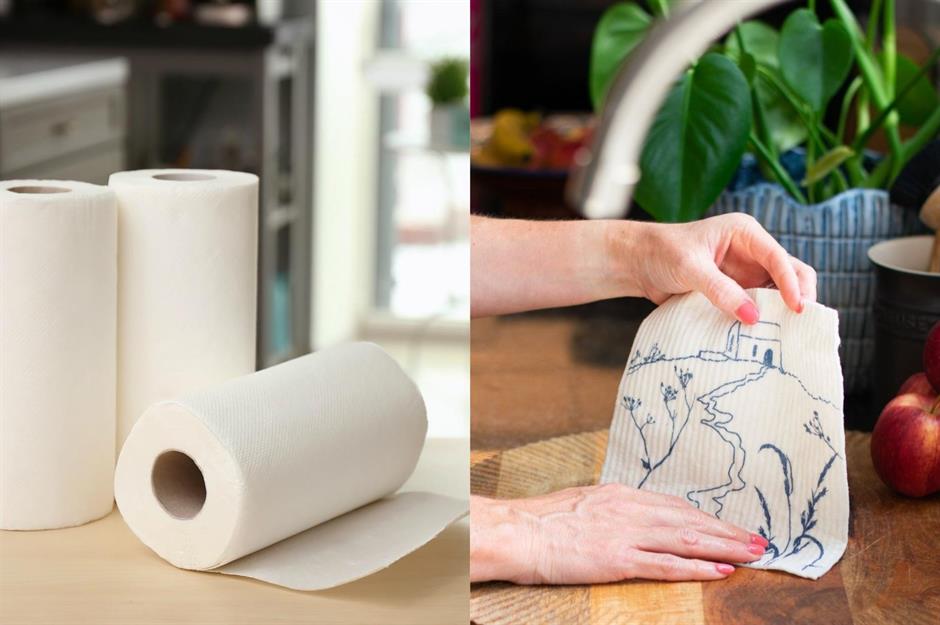
Many people think used kitchen towels are recyclable – but they aren't! Banish wasteful kitchen paper and opt for reusable bamboo towels instead. Many are made from organic, sustainably sourced bamboo and can be washed and reused 85 times.
You could also opt for washable kitchen cloths, formed from eco and biodegradable materials. These can simply be washed, dried, and reused.
Featured eco kitchen cloth available from Helen Round.
Swap harsh cleaners for eco versions
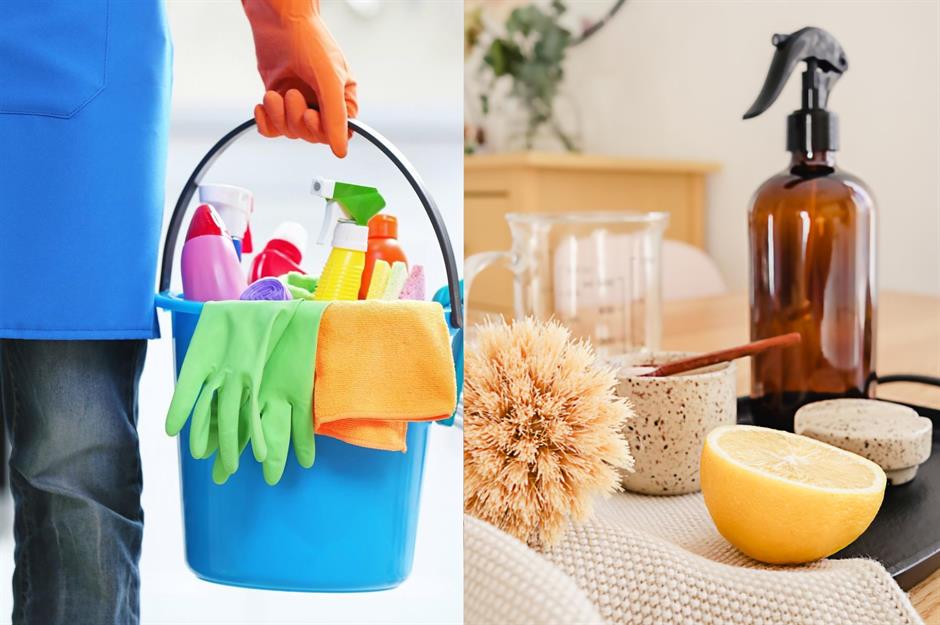
Research has found regular exposure to powerful cleaning products could increase your chances of developing chronic obstructive pulmonary disease (COPD) by nearly a third.
You could have a go at making your own cleaning products using lemons, white vinegar, and essential oils, but be sure to research them thoroughly to make sure they are safe for the job at hand. Or, for a quick swap, simply stock up on eco versions of your favourite products.
Swap liquid soap for a bar of soap
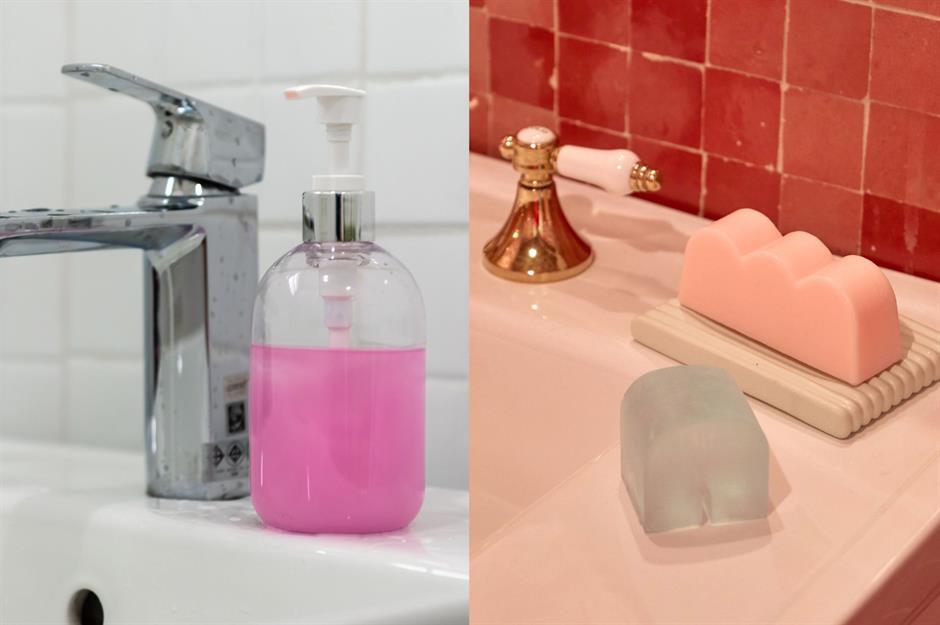
Why buy your soap in plastic packaging when you don’t have to? Bar soap is widely available and, in many cases, you can buy it completely free from packaging.
Pop a fresh bar on a pretty ceramic soap dish and you’ll have clean hands and a greener footprint.
Featured soap holder available from Charles & Marie.
Sponsored Content
Swap cotton pads for flannels
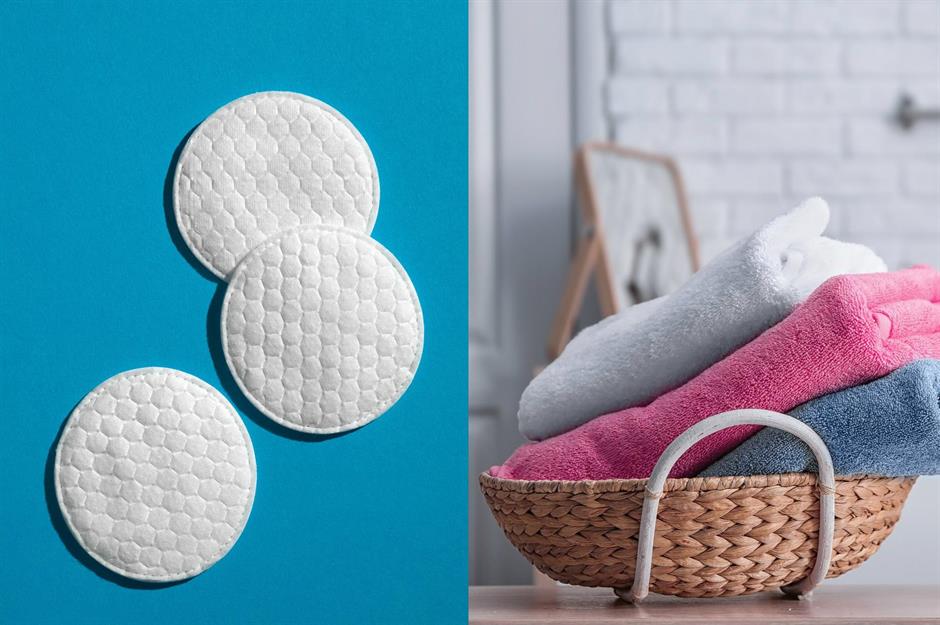
Cotton pads might be a quick and easy way to wash away the day, but unfortunately, the non-organic cotton farming industry is a major source of environmental pollution.
Swap your cotton pad habit for a pack of flannels or reusable fabric pads, and once they’re soiled, simply place them in with a load of washing and reuse them again and again.
Swap cut flowers for real plants
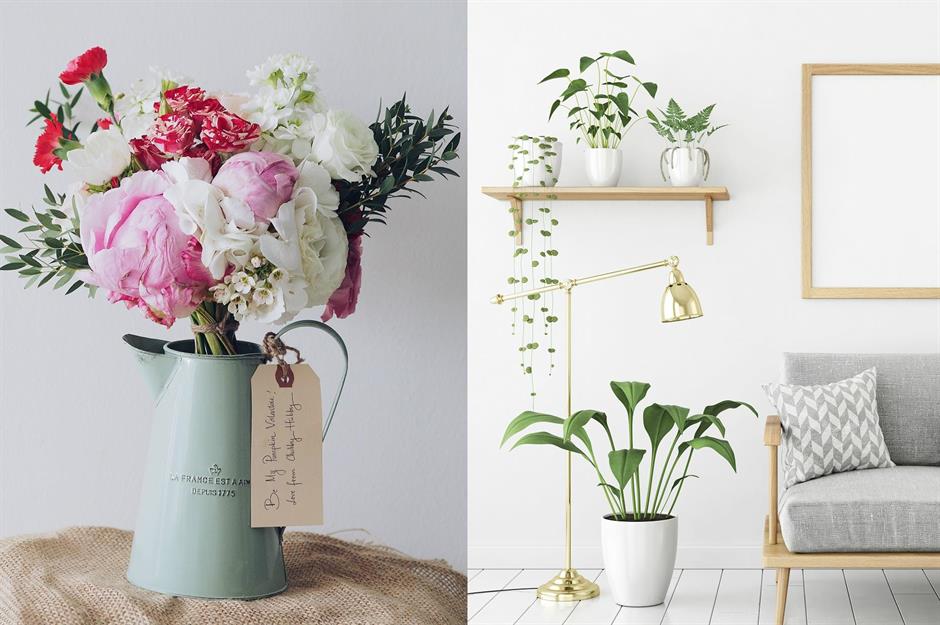
Fresh flowers are beautiful, but they are a nightmare for the environment. First, they have to be watered and grown, then transported to their final destination – around 90% are imported according to the BBC – and finally preserved in a refrigerator.
Plus, many fresh flowers are wrapped in plastic cellophane, which isn't eco-friendly. Go for a real plant instead – not only will you be doing your bit for the planet, but they will help remove airborne pollutants from your home and last a lot longer, too.
Swap air freshener for open windows
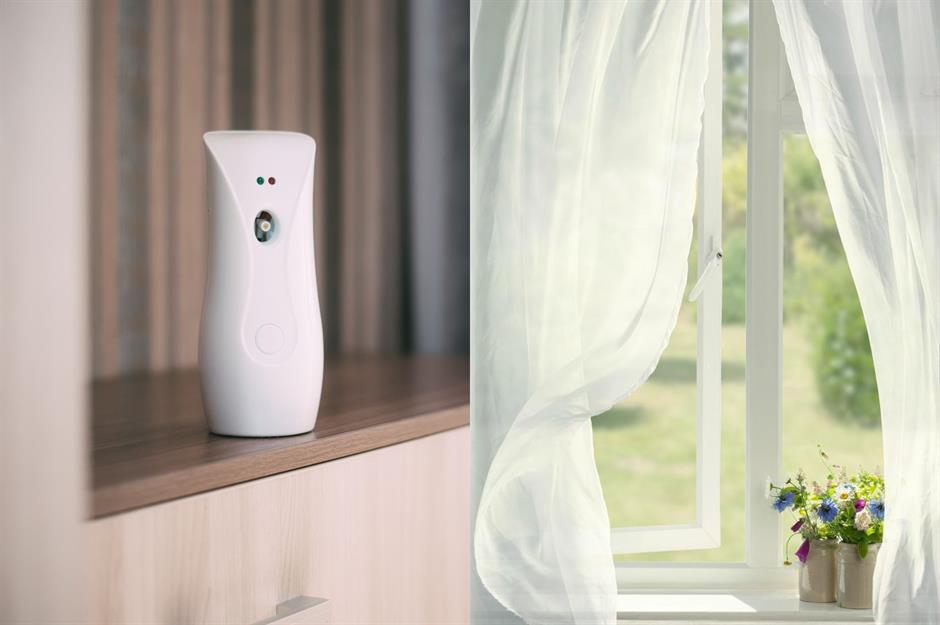
Air fresheners might make your home smell nice, but evidence has shown that some contain more than 100 chemicals, including volatile organic compounds (VOCs), such as formaldehyde and benzene, which are often associated with different types of cancer.
They can also trigger allergy symptoms and worsen existing allergies and asthma. They also don’t tend to get rid of odours – they just cover them up. To get a naturally fresh-smelling home, keep on top of cleaning and give it a daily blast of fresh outdoor air.
Sponsored Content
Swap shopping for new décor for vintage items

Next time you need something for your house, such as a piece of furniture, consider whether you could buy it second-hand.
As these products already exist, it’s less of a strain on the environment and, with some upcycling, could make for a one-of-a-kind statement piece.
Swap a tap water hose for a water butt
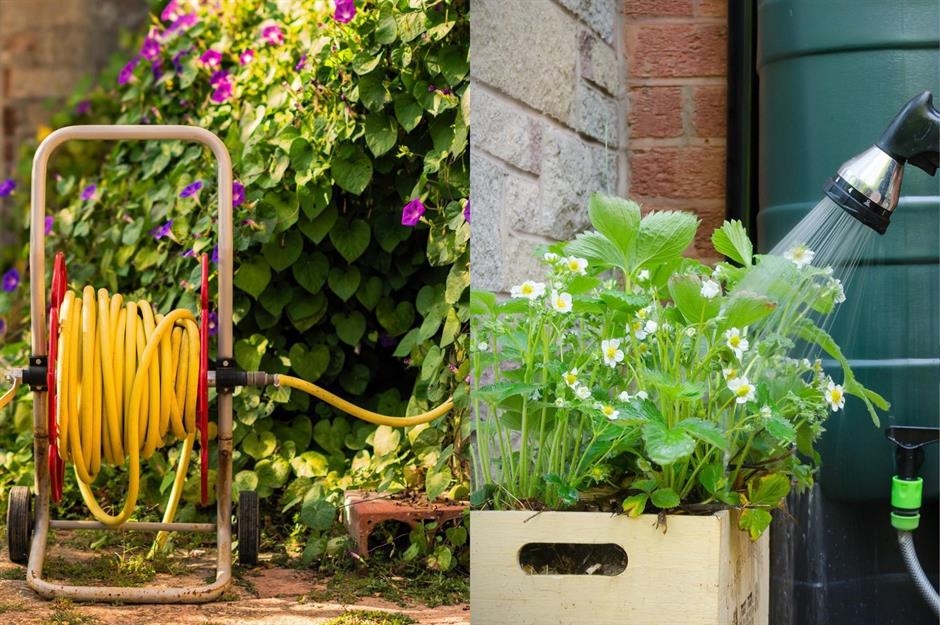
Like to keep your garden looking pretty? Grab a water butt and water your plants using rainwater where possible.
Not only will you lower your water consumption, but your flowerbeds will thrive, too, since most plants tend to prefer rainwater to tap water.
Swap the waste bin for a compost bin
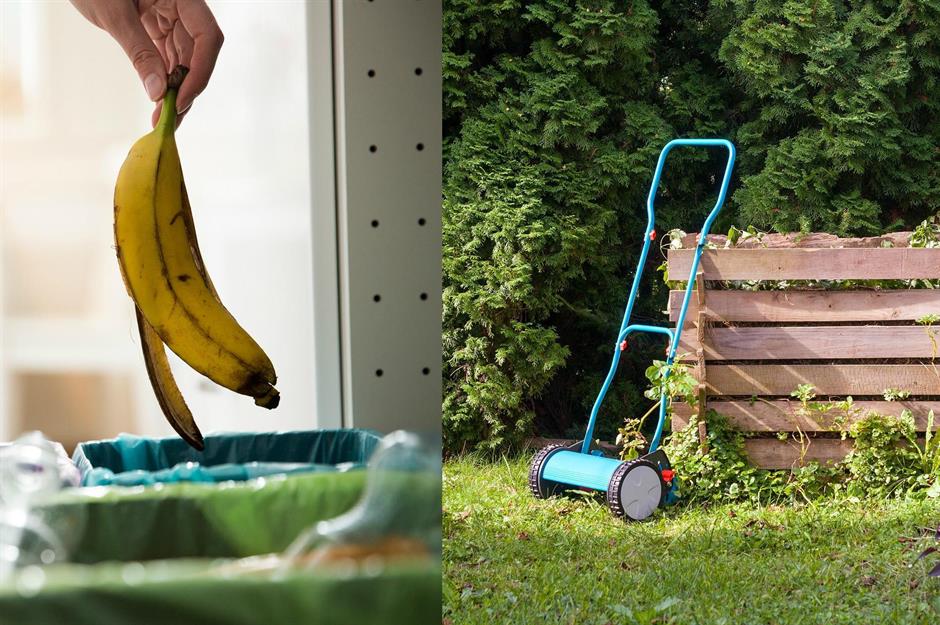
If you do a lot of cooking from scratch or eat plenty of fruits and vegetables, it could be worth investing in a compost bin.
Simply dispose of your vegetable peel, egg shells, and fruit pits in the compost bin instead of your regular bin, and you’ll not only reduce waste but save money on compost, too.
Loved this? Check out more eco home hacks and money-saving tips
Sponsored Content
Comments
Be the first to comment
Do you want to comment on this article? You need to be signed in for this feature